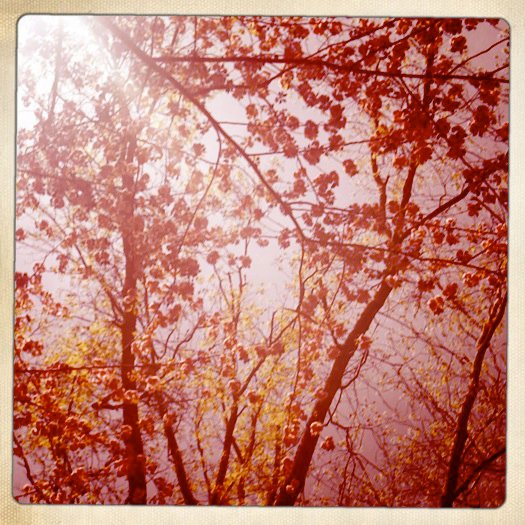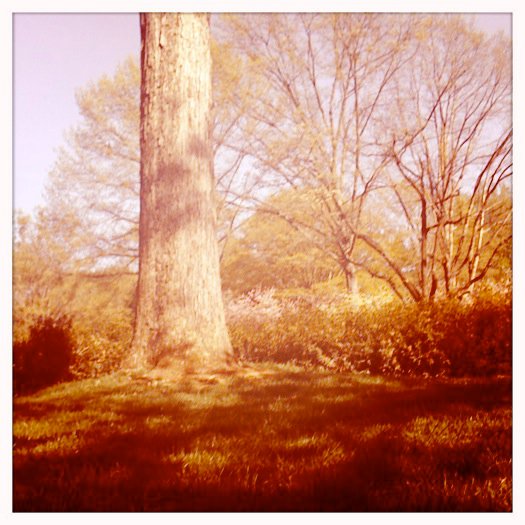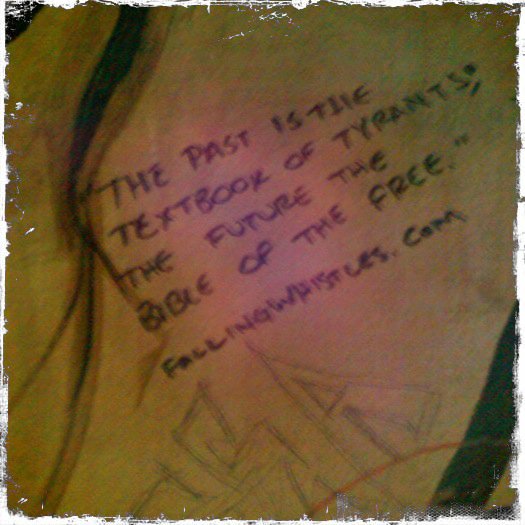The last three days have been nothing short of illuminating.
Here, deep in the South, surrounded by 14,000 acres of forest, within one of our nation's oldest universities, I have found new students fighting for a new era. Inside walls built to preserve an antiquated system of inequality, I have found students demanding to know -- how do we create a world freer than our fathers'?
Our first night brought me to the greeks. Now every university believes their greek life is unique, so I tend to listen to rumors with a fair amount of skepticism. But after traveling the state, I can say with some honesty -- these guys are notorious. Greek life on on this mountain takes things to new heights. I was warned by more than a few people about them. They looked me dead in the eyes and said -- these guys won't care. They won't listen and they won't help.
I walked into a building more like a castle than a home. Walking inside we found a large empty room. The floor was stained by the stench of beer and the walls spoke of decades of debauchery. When I asked why it was empty they looked back and asked -- why fill it with furniture? Less room for bodies.
We walked upstairs, unsure of what we'd encounter. These are men of privilege, many leaders at a university built inside the Confederacy. We are California hippies, fighting for peace in a land far away. As I walked in, I met a crew of guys just a few years younger than myself. In many ways they reminded me of my old buddies in college. Like most men in this part of the country, they were gracious and welcoming, but happy to keep their own skepticism on public display.
We talked about hiking and traveling and we reveled in the need to sometimes just get the hell out of dodge. To get lost and escape. Many of them chose this school because of the climbing. These walls can't keep them in.

I then told them about the war taking place in Congo, how I found out about it, and what we're doing to help. We talked of great men in our history, like Churchill and King, who had fought against nearly impossible odds to create a better world and I told them we were traveling the country looking for partners in peace. They looked me right in the eyes and said simply -- how can we help?
Two days later, they hosted a car wash. They didn't even tell me they were doing it -- they just went out and did it. As soon as I heard, I thought - damn, I like these guys. The world can doubt them all they want, but these are men of action.
Next month, they've decided to invite the entire school into their back yard and throw a festival. Kick it for Congo. The very same guys I was told did not care, could not care, would not care, may well become our strongest partners on campus.
I left the house wondering why we are so afraid of one another, and headed to the local Whistler Society. The Whistler Society was inspired by three loves: The Goonies, Dead Poets Society and Wilberforce's secret abolition gatherings.
It's a small group of people dedicated to whistleblowing -- growing freedom by calling out its absence. It's a place to get smart. And articulate. Why is the world half free? What is our place in it? What can be done about it?
This gathering of 15 students had been meeting every week, all year long, and attempting to learn and understand the conflict in Congo and what it had to do with us. For nearly a year, they had studied and argued, cried and laughed, raised money and raised consciousness.
They looked at me and said -- our biggest problem is that we all agree. This shit should not be happening. It is not okay for our purchases to fund a war that rapes women and kills children. It is not okay for our country to turn a blind eye to problems such as this. It is not okay that our media ignores the people of Congo. Even when they do tell stories, it seems more disaster pornography than legitimate story telling. But what can we do to change it? Really, what can we possibly do?
Inside the Whistler Society are two Rwandans, who just recently came to America. They are part of a scholarship program and have been at the University for nearly a year. Since my last time here, I have become good friends with one of them. At the end of the meeting, he looked down at his feet, shuffled back and forth, and looked back up at me. "People do not make sense." He said. "Why do these soldiers kill? Why do they fight? They cannot take a house, they cannot take a wife -- why do they continue? And you. Why do you fight for peace? Who are you? You are powerless. You are nobody. People do not make sense."
I have to admit, I have had many a day when I agreed with him.
The group was from a very different part of the culture than the fraternity boys. But still they agreed -- this is not right. We, as a people, must fight.
The next day, I spoke to a couple hundred students. The night was titled Reimagine Our World. We spoke of many things -- among them, the brain, perception, Congo and change. After a day of school and in the midst of exams, these students listened with rapt attention and, by the end, wanted to talk more. They asked question after question, hungry to understand how they could be a part of peace. Hungry to understand how they could create solutions.
We told them to begin by whistleblowing. You may not have all the answers and you may not know how to change things -- but you cannot continue in silence. Silence is compliance. You cannot behave as though the problem does not exist. Speaking up is always the first step. Let it be the first of many.
I think we all left feeling the challenge of a new century. I certainly did. Later that night, about 12 of us hiked into the woods and slept under stars, peering through the Tennessee trees. We drank Jameson around a campfire and talked for hours. The dominant question of the night, asked over and over and over again was -- what is our role in all of this? What is the role of free men and free women in a world that is not free?
A friend rolled onto his knees and said, "Man, I gotta admit. Most days I just want out. I just want to head to the mountains, make a family, and be done with it." I had to admit, most days I want the same thing.
Do we defect and live our lives in isolated bliss? Allow the problems of the world to pass us by, unnoticed and unchanged? Or do we jump into the madness and attempt the good fight? Life presents few clear answers and every road has its cracks. But how can we sit back, while others suffer?
We all slept like hibernating bears on the forest floor, the fire and stars our only protection, and awoke to a groggy morning hike. Back to school. Back to the fight.

Our last night was spent at a highly unusual campus gathering, so unusual that nothing of its kind had taken place as far back as anyone could remember.
A racist blog had been written anonymously condemning the university for abandoning its traditional values in favor of progress. It was a vile blog that had struck fear into the hearts of many people on campus.
The students gathered to share their feelings, thoughts, reactions and fears. This was a time for reconciliation and solidarity.
A white girl stood up and said -- why aren't there any hair products in the local store for black girls? A black girl stood up and said -- why didn't the university respond until the blogger threatened a white girl? An Asian man stood up and said -- why isn't there anyone on staff who looks like me, eats like me, thinks like me?
A big dude from the football team stood up and started out nervously. "Uh, I've never spoken to this many people." As he continued to speak, he gained momentum and, piece by piece, his true thoughts came tumbling out. "I mean, I walk down the street and ya'll, I can tell. I can see it. People are afraid of me. Everywhere I go, people are scared. They walk on the other side of the street from me. Why? Is it because I'm an athlete? Because I walk with swagger? Or is it because I'm black?"
All around the room, I saw the same expression on people's faces. Shame. Embarrassment.
Damn, they thought. He knows. He can feel it.
Students of every color and creed, shape and persuasion, gathered to say out loud what so many of them felt inside. We are the same. We are one. And we must learn to understand one another.
Towards the end, a young girl stood up proudly wearing her whistle. She said, look ya'll. I'm weird. I'm a bisexual pagan. And I'm sure there are a lot of you who think that what I think is wrong. But we are not so different from one another. The hate that writes racism is the same hate that condemns me.
I have to admit, I was proud of her. Statements like that take guts.
We filed outside and each of us were given a candle. We stood in an oblong circle and stared into the eyes of people we might never have otherwise met. We held our candles close to protect them from the wind and we sang songs of peace.
Let It Be. Amazing Grace. No Woman No Cry. Hallelujah.
We stood on stones built to enshrine an ethic of pride and cried away their decay.
Here is a generation, ready for a new era. They may be the minority, but such fights have always begun small. King said, "the saving of our world will come, not through the complacent adjustment of a conforming majority, but through the creative maladjustment of a nonconforming minority."
I'd rather fight with five people ready to take a bullet for peace, than with five million who will forget tomorrow. And even here, deep in the South, this kind of conviction is stirring.
This is the very beginning of a tour taking me to a couple dozens cities. And I wonder where else we might find such strength. Who else among my countrymen is ready for a freer world?
